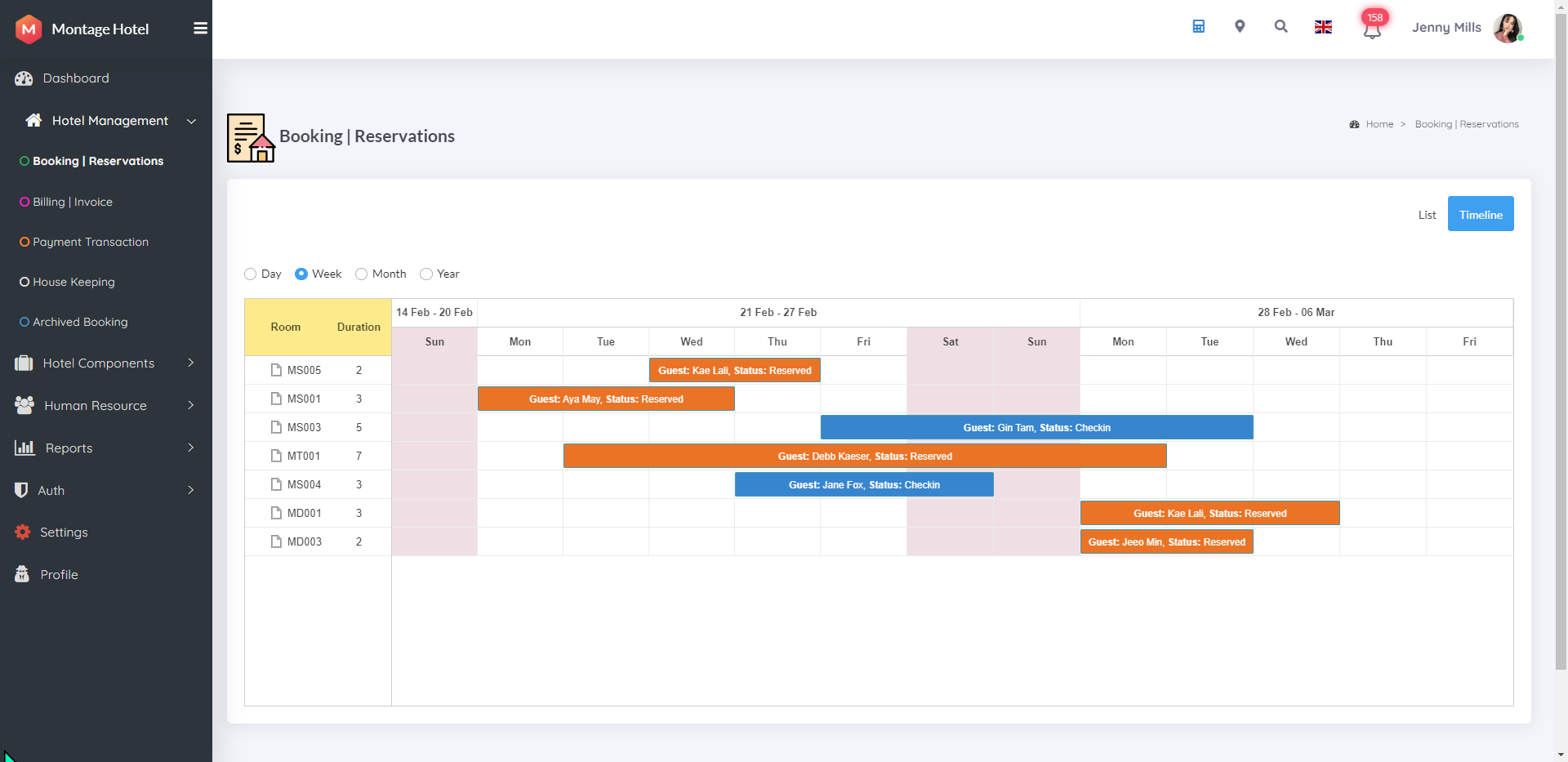
The Impact of Cloud-Based Hotel Management Systems : A Game-Changer in the Hospitality Industry
As the hospitality industry continues to evolve, technology has become a crucial element for hotels to stay competitive. Cloud-based hotel management systems have become increasingly popular, providing hotels with a range of benefits that traditional on-premise systems cannot match. In this article, we will discuss the impact of cloud-based hotel management systems and how they have become a game-changer in the hospitality industry.

Cloud-based Hotel Software: The Basics
A cloud-based hotel management system is a software that allows hoteliers to manage their day-to-day operations and customer interactions through the internet. This type of software eliminates the need for physical hardware and servers, providing a more flexible and cost-effective solution for hotels.
One of the main advantages of cloud-based hotel software is its accessibility. Hotel staff can access the system from any device with an internet connection, making it easy to manage their tasks from anywhere. Additionally, since the software is hosted in the cloud, hotels can scale their operations up or down as needed, without worrying about the limitations of on-premise hardware.
- Cost Savings
- Flexibility
- Accessibility
- Enhanced Security
- Improved Collaboration
Cost Savings
With cloud-based hotel software, hotels can save money on hardware costs, maintenance fees, and IT staff. Since the software is hosted in the cloud, hotels do not need to invest in physical servers or other hardware. Additionally, software updates and maintenance are handled by the vendor, eliminating the need for on-site IT staff.
Flexibility
Cloud-based hotel software provides a flexible solution for hotels, allowing them to scale their operations up or down as needed. With traditional on-premise systems, hotels are limited by the hardware they have installed. With cloud-based systems, hotels can add or remove features as needed, making it easy to adapt to changing business needs.
Accessibility
Cloud-based hotel software is accessible from any device with an internet connection. This means that hotel staff can manage their tasks from anywhere, whether they are at the front desk or on the go. Additionally, since the software is hosted in the cloud, hotels can provide remote access to vendors, partners, and other stakeholders.
Enhanced Security
Cloud-based hotel software provides enhanced security features, including data encryption and secure logins. Additionally, since the software is hosted in the cloud, hotels can rely on the vendor to handle security patches and updates.
Improved Collaboration
Cloud-based hotel software allows hotel staff to collaborate more effectively, whether they are working on the same shift or across different time zones. With cloud-based systems, team members can access the same information in real-time, making it easy to communicate and work together.
How Cloud-Based Hotel Management Systems Improve the Guest Experience

Cloud-based hotel management systems can also have a positive impact on the guest experience. Here are some ways that cloud-based systems can improve the guest experience:
1. Faster Check-In and Check-Out
With cloud-based hotel software, guests can check-in and check-out more quickly and efficiently. Since the software is accessible from any device, front desk staff can process guest requests faster, reducing wait times and improving the guest experience.
2. Personalized Services
Cloud-based hotel software allows hotels to store guest data securely in the cloud. This data can be used to provide personalized services to guests, such as personalized room preferences, customized menus, and targeted promotions. This level of personalization can enhance the guest experience and increase guest loyalty.
3. Seamless Communication
Cloud-based hotel software makes it easy for guests to communicate with hotel staff, whether they are requesting room service or reporting an issue. With real-time communication tools, guests can receive prompt responses to their requests, improving their overall experience.
4. Streamlined Services
Cloud-based hotel software can also streamline hotel services, making it easier for guests to access amenities and services. For example, guests can use mobile apps to order room service, book spa treatments, or schedule airport transfers, all from the convenience of their mobile devices.
Future Trends in Cloud-Based Hotel Management Systems
1. Artificial Intelligence (AI)
AI is expected to play a larger role in cloud-based hotel management systems, providing hotels with predictive analytics and personalized services for guests.
2. Mobile Applications
Mobile applications are becoming increasingly popular in the hospitality industry, allowing guests to manage their bookings, access hotel services, and communicate with hotel staff from their mobile devices.
3. Internet of Things (IoT)
IoT devices, such as smart thermostats and lighting, can be integrated with cloud-based hotel management systems, providing hotels with greater control over energy usage and enhancing the guest experience.
Conclusion
Cloud-based hotel management systems have become a game-changer in the hospitality industry, providing hotels with cost savings, flexibility, and enhanced security features. These systems can also improve the guest experience, providing faster check-in and check-out, personalized services, and seamless communication. As the hospitality industry continues to evolve, cloud-based hotel management systems are expected to play an even larger role, with trends such as AI, mobile applications, and IoT